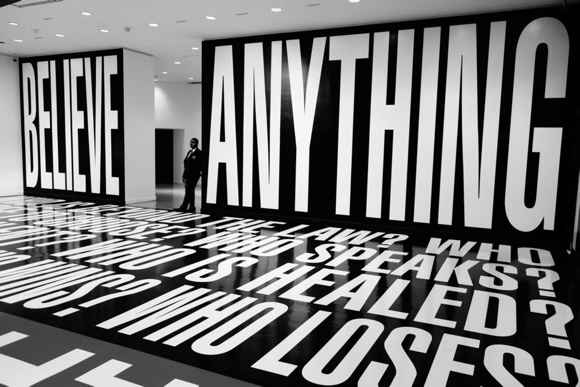2021-04-10 vs.1.3; from 2018-01-08 [livingislam][Main New Texts ][Muḥyiddīn Ibn ʿArabi] [Understanding God] [Metaphysics] [our

| ❆ | NB: Islam defines liberation not as freedom of the self, but rather freedom from the self. |
Foucault inspired a system that divided the world into two camps: "dominant" and "marginalized". The dominant narrative was the Eurocentric heteronormative neoliberal patriarchal narrative. The marginal narrative would be that of the people of colour, minorities, the poor, the disabled, women, children, and homosexuals. His ideas became the basis of activist groups after the 1960s.
▢ Upper-middle-class academics in the West were thrilled that they could now speak for the marginalized groups, which they couldn't really do when communism was popular among the dispossessed. So they formed their own marginalized narratives of history. Each narrative was aimed at deconstructing the dominant narrative's "artifacts" - its pop culture, its founding literature, and its theorists. Each marginal group then formed its own history, literature, and artifacts. This process was in full swing by the 1980s.
At first sight, it appears compassionate to give a voice to marginalized people. But this postmodernist system comes with the exact same assumptions about the world that the dominant system has:
(1) the belief that the world is controlled by power and chance,
(2) the belief that truth is relegated to the observable natural sciences,
(3) the belief that pre-modern spirituality is superstitious and ritualistic,
(4) the belief that suffering is all evil, all natural, and does not have meaning,
(5) and no formal end-goal or salvation, unlike Islam, Christianity, and Marxism.
For Foucault, there is no way out of the suffering - only a means to "resist" the dominant powers and survive on the margins. Postmodernists believe only in power and the fight over it. They are experts in jargon, little catch phrases, but not actual dissent. They disintegrate much, but they construct nothing. When all is said and done, they ultimately put their faith in the free market, and fall back onto Anglosaxon individualist naturalist liberalism.
Foucault offered the educated bourgeoisie the opportunity to side with and speak for the working class. They are not awaiting some proletarian revolution - they are more bent on co-opting the current political and economic system to give themselves a bigger piece of the pie.
What leftist Muslims have effectively done is added themselves to this marginal coalition. They've completely embraced intersectionalism,2 and they've put aside whatever ethical beliefs they have that clash with other marginal groups (gay marriage, abortion, etc.) Some have completely embraced those things.
So Muslims intellectuals have a big task ahead of them. They need to understand Nietzsche and Foucault if they really want to be able to correctly recognize the time that we are and the challenges that we face. Then, we need to continue developing our own distinct worldview, and support leaders in our community who are driving towards that change.
May Allah give us tawfeeq.
Quoted from [facebook.com/nonfeministmuslim]

Related texts
2021-04-10 vs.1.3; from 2018-01-08
[livingislam][Main New Texts ][Muḥyiddīn Ibn ʿArabi] [Understanding God] [Metaphysics]
[our ![]() ]
[next page]
]
[next page]
facebook.com/nonfeministmuslim/
with permission by the author
↩
What Is Intersectionality, and What Does It Have to Do With Me?
”Intersectional theory asserts that people are often disadvantaged by multiple sources of oppression: their race, class, gender identity, sexual orientation, religion, and other identity markers.”
↩